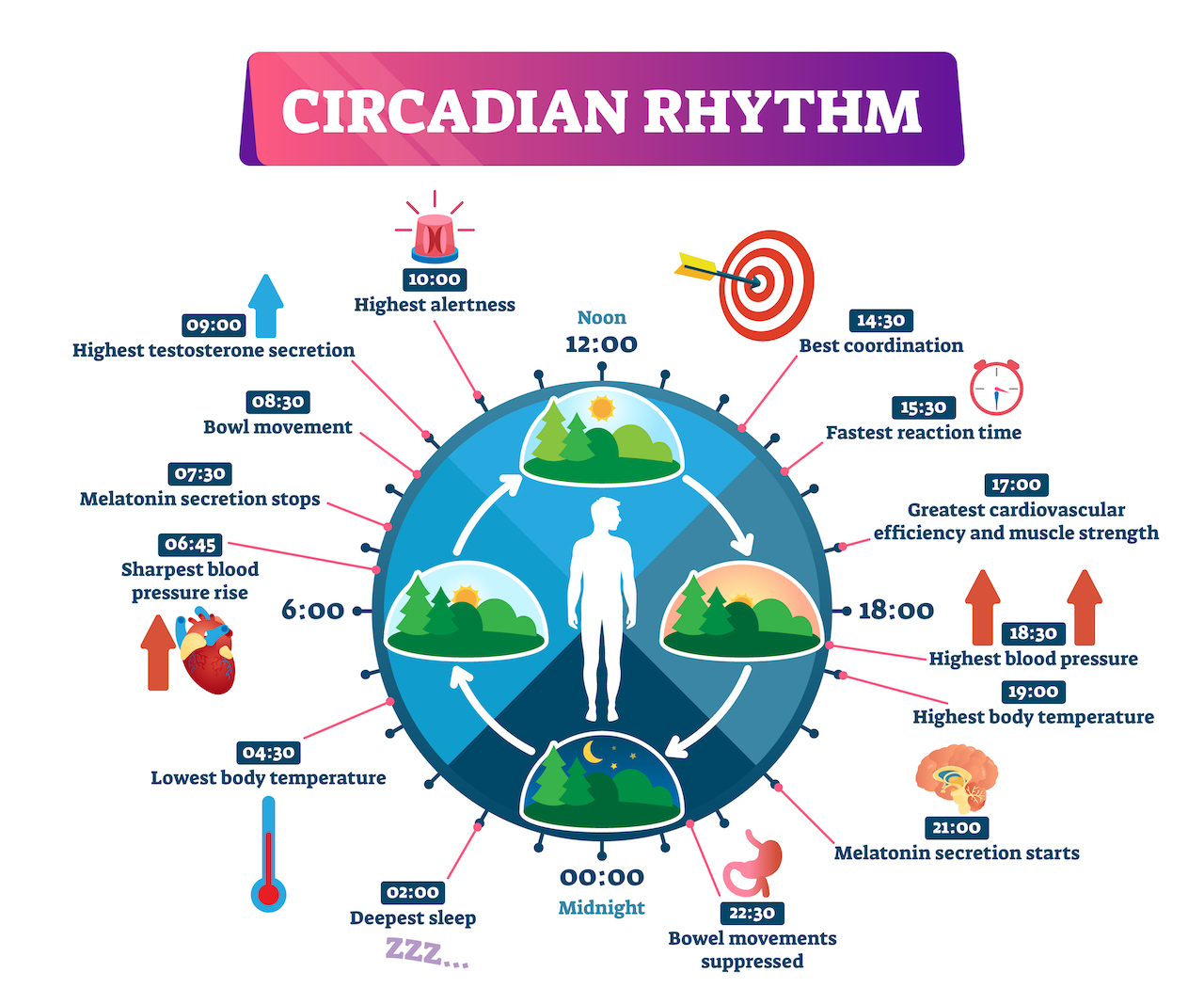Kind regards,


Our Circadian Rhythm is vital to help optimise energy expenditure and regulate the internal physiology of our body.
Circadian Rhythm develops in the first few months after birth as we learn to adapt to our environment with sleep, hunger and alertness. Melatonin production begins during this stage and is the hormone that helps control how and when we sleep. On the reverse side, Cortisol production is also established and this hormone regulates our body’s stress response, metabolism, blood pressure, blood sugar and inflammatory response overall.
So, pretty powerful stuff for mind and body well-being!

Your routine can really help your Circadian Rhythm by working with the body to promote the natural pattern of your alertness and when you need rest and sleep.
Are you an Early Bird of a Night Owl person? This is really important when determining a routine that will work for you. There is no point planning regular early gym sessions if you’re most alert in the evening!
Research has also shown that having a routine lowers stress, reduces anxiety and can be extremely calming.

First, establish a routine that will work best for you.
Then, focus on areas that are vital for the autonomous function of your body and Circadian Rhythm.
To summarise, by reducing the number of variables in a day, you reduce the number of decisions that need focussing on.
This in turn will free up time and pressure in your life so that you can focus on enjoying the everyday.
Encouraging routine and a pattern of events will enhance your body’s self-regulating rhythm to act in harmony with you. End result, a calmer, healthier body working in balance.
If you need our help and would like to book an appointment, Please Call: 02089776396
If you have aches and pains, don’t wait, just call the clinic and come in and we will be able to diagnose the problem.
You can email info@osteopathuk.co.uk or call 02089776396
| Click the link for our website: http://www.osteopathuk.co.uk/ |

Please do not hesitate to get in touch with us for any reason, we are here to help and welcome any feedback. Click here for more information.